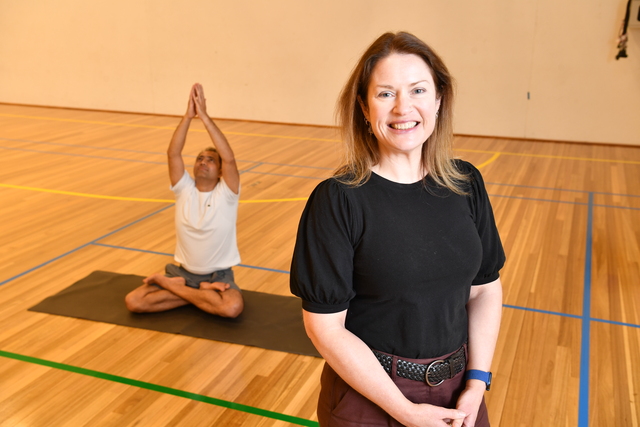That exercise improves our mental health is widely accepted.
What is less clear is exactly how it does this and whether it helps alleviate mental health problems or just prevent them?
To try and answer these questions a team from Victoria University’s Institute for Health and Sport is conducting a research project and is calling on members of the public to participate.
The study, run by PhD student and yoga teacher, Niranjan Parajuli, involves young people with depression taking part in a 12-week yoga intervention and assessing the effect this has on their mood and thinking patterns.
Mr Parjuli’s PHD supervisors Dr Alex Parker and Dr James Broatch are overseeing the study and Dr Broatch explained the type of people he was looking for.
“He’s recruiting adults aged 18 to 45 who are experiencing symptoms of moderate to severe depression,” he said.
“There’s a series of assessments done before and after the yoga and also a three month follow up.”
Dr Broatch said the study was not only focused on any changes in mood and cognitive function caused by the yoga, but other brain activity as well.
“We’re also looking at what we call neuro biological mechanisms, specifically things like blood flow to the brain, some neuro muscular assessments and some blood tests on top of the cognitive function, mood and mental health questionnaires.”
While participants will need to come into VU’s Footscray Park campus for initial assessments, Dr Broatch said most of the yoga program online, meaning people didn’t need to live in Maribyrnong or even the western suburbs, in order to take part.
“There’s one face to face session per month and 11 online per month,” he said.
“It’s free of charge, so basically three free yoga sessions per week for 12 weeks.”
The study has already begun with the first few recruits now doing their weekly yoga sessions, but Dr Broatch said there was room for many more.
“We want 50 in total so we’re recruiting,” he said.
“The aim is to get the majority of participants completed next year.”
Detials: callforparticipants.com/study/MWH46/yoga-to-improve-mood-and-thinking-patterns-in-young-adults-with-depression







